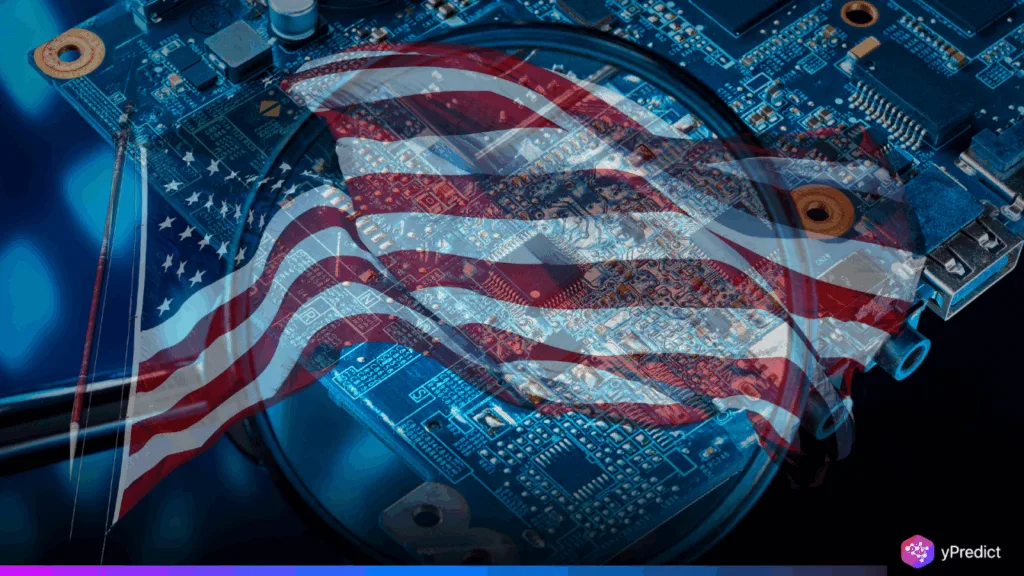
The Trump administration plans to restrict AI chip exports to Malaysia and Thailand. Aiming to stop suspected semiconductor smuggling to China. The draft rule from the US Commerce Department targets Nvidia’s advanced processors, which are already banned in China. Officials believe that chips may be reaching China through Southeast Asian intermediaries. The move marks an initial step in President Trump’s strategy to replace the Biden-era AI diffusion rule, which had drawn criticism from allies and tech firms. The rule would maintain restrictions on China and 40+ countries, with added scrutiny for exports to Malaysia and Thailand.
Global Implications & Industry Response
While Nvidia remains silent on the proposal, CEO Jensen Huang has said there’s “no evidence” of diversion. Yet, with firms like Oracle heavily investing in Malaysian data centers and chip shipments rising, US regulators remain concerned. Washington walks a tightrope: it wants to push American tech globally to compete with China, but fears US chips could be accessed remotely from data centers abroad. The Commerce Department plans temporary exemptions, allowing US-based and allied companies to continue unlicensed shipments for several months post-implementation. This grace period could reduce disruption to supply chains. Additionally, certain exemptions will be built in, especially for critical operations like chip packaging, commonly handled in Southeast Asia.
The regulation also follows legal scrutiny in the region. In Singapore, prosecutors recently charged individuals accused of misrepresenting the final destination of Nvidia-powered AI servers originally routed through Malaysia. While Nvidia is not under investigation, the case underscores Washington’s growing unease about regional re-routing. As the US clamps down, Malaysia and Thailand may face increasing pressure to tighten oversight, especially as Southeast Asia grows as a global chip hub. The industry awaits clearer guidance amid rising geopolitical and commercial tension in the AI race.
Policy Shift & Strategic Tensions
This draft rule represents the Trump administration’s first formal shift away from Biden’s AI chip export framework. The so-called “AI diffusion rule” had triggered backlash for being too sweeping and for lacking clarity on safeguards around chip usage in foreign data centers. Trump’s new stance introduces tighter regional controls without presenting a full replacement, raising fresh questions about oversight consistency. The US is grappling with two competing priorities: expand the global use of US AI chips to maintain dominance, but prevent leakage to Chinese military or tech interests. The compromise involves geographic targeting: strict on certain nations, lenient on trusted allies.
Commerce Secretary Howard Lutnick said AI chips would be allowed in foreign data centers. Only if run by approved American operators, but that condition remains ambiguous. Meanwhile, Southeast Asia’s strategic importance grows. With expanding cloud infrastructure and chip-processing capacity, Malaysia and Thailand are seen as both growth engines and regulatory blind spots. The situation also reflects a broader trend: export controls are no longer just about tech; they’re geopolitical levers. As China races to catch up in AI and semiconductors, the US is increasingly focused on guarding supply chains, even at the risk of trade friction with allies.
Outlook & Industry Uncertainty
The chip curbs in Malaysia and Thailand show how the AI arms race is redrawing global trade maps. While exemptions may cushion the initial impact, the long-term effects on supply chains and regional investment are unclear. US firms operating in Southeast Asia may face compliance headaches, and governments in the region are being forced into tougher enforcement roles. With cloud computing and AI development accelerating, Washington is sending a message: where chips go, rules will follow. As the US tightens control, the pressure on allies to align, without derailing growth, will shape the next phase of AI geopolitics.






